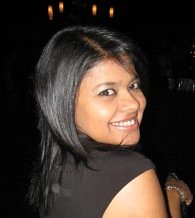Sunshine Too Brief


All Contents copyright of
Tazzy at
tashuq78@gmail.com
I'm a self-absorbed Bengali-Torontonian;
Fish comes to me raw, wrappend in seaweed, not cooked in curry;
I love watching thunderstorms and rain;
Sad endings make more sense to me than happy ones;
I hate empty walls.
In the News
Craving of the week-
Dark Chocolate
Reading List-
Midnight's Children
Movie review(out of 5)-
127 hours- *****
Buried- ****
That Girl in Yellow Boots- **
Love of the week-
Seeing James Franco
Aim for the weekend-
Watch 'Going Postal' The Movie
My Novella: Samosa for the Arranged Souls
Archives
Friends & Daily Reads
Qeta
Zee
Isheeta
Diane
Samosa
Brainy Jane
Megaphone Diaries
Third World View
Daily Dose of Imagery
Bangladesh Photography
Postsecret
Passive Aggressive Notes
Fug Yourself
@Tremendous News
Global Voices
Cake Wrecks
Listings and Credits

Blog designer @blogskins.com
Daily Dose of Imagery for side-panel picture
Flickr Beta
Thanks! You are my visitor number,
3 Comments:
i grew up reading enid blyton books, and to be honest i felt the same way about them - i longed for the adventures, the experiences! toys came to life at night, kids were sent to boarding school where they played lacrosse and went swimming and had a jolly good time!
I totally understand what you're getting at here. Unfortunately I was too much of an isolationist to ever be able to relate to Austen's heroines; I did and still do enjoy the snarkiness though. It probably says something (horrible) about me that the two characters that I most connected with growing up were Oliver Twist and Stephen Dedalus (yes, I read Joyce in grade six, what of it?).
Sim: I need to borrow of your Blyton books one day.
Qeta: Joyce in grade 6? dang woman...I tried reading 'Portrait of an Artist...' just 3 years ago and its still sitting unfished :P
Post a Comment
<< Home